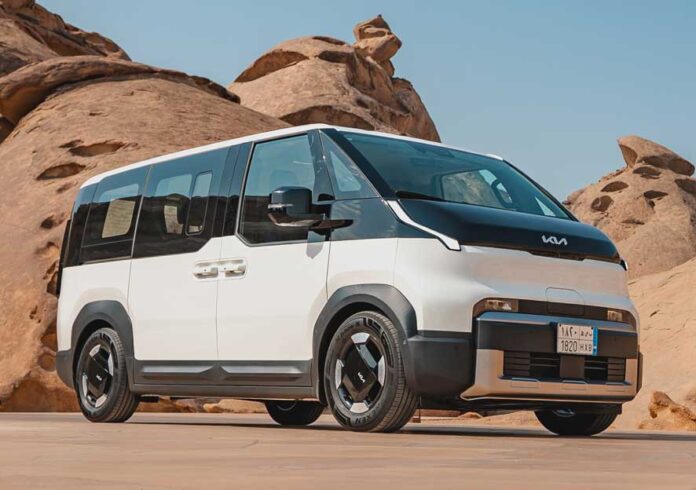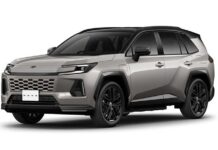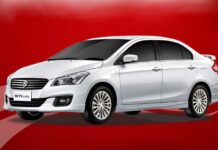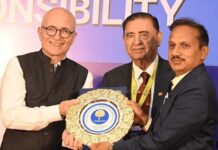
Kia Corporation has signed a pilot agreement with leading real estate developer Red Sea Global (RSG), originally established in May 2025, to deploy next-generation electric vehicles starting with the Kia PV5. Part of Kia’s Platform Beyond Vehicle (PBV) global strategy, the PV5 combines commercial functionality with modular design, advancing a shared vision of sustainable, future-ready mobility.
As part of the pilot, Kia is supplying RSG with a PV5 Passenger for localized testing across key service scenarios, including airport-to-resort transfers, inter-resort transport, and broader fleet operations. While this initial deployment focuses on two of Saudi Arabia’s flagship destinations – The Red Sea and AMAALA, the collaboration extends beyond these sites and serves as a broader platform for exploring mobility solutions and supporting the Kingdom’s Vision 2030 strategy to achieve a net-zero society.
Built for adaptability and operational efficiency, Kia’s PBVs combine electric mobility with advanced software and configurable interiors, providing flexible solutions for the hospitality and tourism sectors.
To ensure a successful integration, Kia has conducted an on-site inspection and is providing product training and technical instruction for RSG teams. Kia’s authorized distributors will remain closely involved throughout the trial, offering hands-on guidance and localized expertise across both destinations.
Hokeun Chung, Executive Vice President and Head of Future Strategy Division at Hyundai Motor Group, said: “Saudi Arabia is a strategically important market for Hyundai Motor Group (HMG), and we are pleased to begin our collaboration with RSG through the PBV Pilot project. In the mid-to-long term, HMG and RSG plan to collaborate on new business opportunities utilizing innovative smart city technologies, such as in-vehicle solutions, data, robotics, and more. Building on our long-standing relationship, we look forward to supporting RSG’s vision of an ultra-luxury, eco-friendly smart city by delivering HMG’s wider Smart City solutions backed by our extensive expertise and capabilities.”
Hans Aksel Pedersen, Group Head of Operations, Red Sea Global, said: “At Red Sea Global, we are committed to setting new benchmarks in responsible development and sustainable operations. While our guest land fleet is already 100% powered by sunlight, this pilot program with Kia allows us to test the most cutting-edge, eco-conscious mobility solutions in our destinations. Together, we are reimaging how people move through and connect with the world’s most exceptional places.”
Ahmed Soudodi, Vice President of Product Marketing, Kia Middle East & Africa, said: “This collaboration is a natural fit, driven by a shared ambition to transform the future of mobility through innovation, sustainability, and a deep understanding of customer experience. By combining Kia’s next-generation PBV technology with Red Sea Global’s pioneering approach to responsible development, we’re creating a blueprint for smarter, cleaner, and more connected travel across the region.”
Kia and RSG are collaborating on optimizing the PV5 electric vehicle for resort logistics, with plans for a custom variant tailored to luxury hospitality needs. This partnership supports both companies’ long-term commitment to sustainable development and innovation in regenerative tourism and smart mobility.
The initiative follows a March 2024 MoU between Hyundai Motor Group and RSG and is coordinated by the HMG Smart City Innovation Group. Kia, as the official OEM and mobility partner, will also explore future deployments of larger PBVs like the PV7 (2027) and PV9 (2029), aiming to sell 250,000 units globally by 2030.
This collaboration marks a strategic step toward building a scalable, intelligent, and eco-conscious mobility ecosystem.









